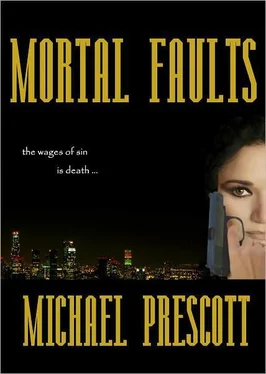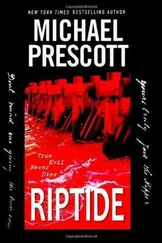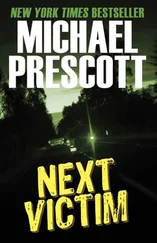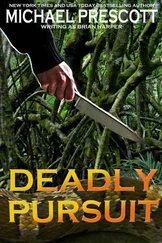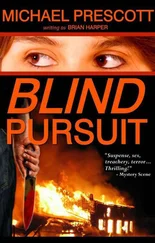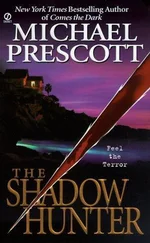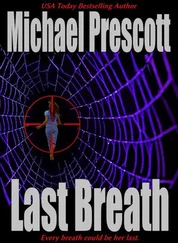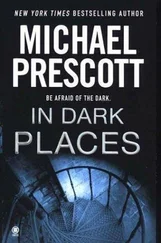Michael Prescott - Mortal Faults
Здесь есть возможность читать онлайн «Michael Prescott - Mortal Faults» весь текст электронной книги совершенно бесплатно (целиком полную версию без сокращений). В некоторых случаях можно слушать аудио, скачать через торрент в формате fb2 и присутствует краткое содержание. Жанр: Триллер, на английском языке. Описание произведения, (предисловие) а так же отзывы посетителей доступны на портале библиотеки ЛибКат.
- Название:Mortal Faults
- Автор:
- Жанр:
- Год:неизвестен
- ISBN:нет данных
- Рейтинг книги:4 / 5. Голосов: 1
-
Избранное:Добавить в избранное
- Отзывы:
-
Ваша оценка:
- 80
- 1
- 2
- 3
- 4
- 5
Mortal Faults: краткое содержание, описание и аннотация
Предлагаем к чтению аннотацию, описание, краткое содержание или предисловие (зависит от того, что написал сам автор книги «Mortal Faults»). Если вы не нашли необходимую информацию о книге — напишите в комментариях, мы постараемся отыскать её.
Mortal Faults — читать онлайн бесплатно полную книгу (весь текст) целиком
Ниже представлен текст книги, разбитый по страницам. Система сохранения места последней прочитанной страницы, позволяет с удобством читать онлайн бесплатно книгу «Mortal Faults», без необходимости каждый раз заново искать на чём Вы остановились. Поставьте закладку, и сможете в любой момент перейти на страницу, на которой закончили чтение.
Интервал:
Закладка:
Learning to make others fear him had made him a man.
The next year, at fifteen, came the third turning point. Until then, he had known that there were other people somewhere who had money and the freedom it bought, but he’d imagined no way of joining them. Suddenly he was big enough, agile enough, to compete in sports, and he saw his way out. Years later he attended a college lecture on a corrupt Tammany Hall politico who, the professor said, responded to criticism with the unapologetic defense, “I seen my opportunities and I took ’em.” The class had laughed. Reynolds hadn’t. He’d understood the Tammany Hall man perfectly. A man’s life was nothing but opportunities seized-or missed.
Football was Jack’s opportunity. He devoted himself to it with a zealot’s passion. Football became his theology, and the ratty field hemmed in by tiers of wooden benches was his church. He pumped iron and ran miles and studied playbooks.
He learned something about himself through football. He learned that he was a stubborn son of a bitch. Once he set his mind on something, he would not be denied. He aimed to win the quarterback position, to make himself the star of the team, and he succeeded.
On the gridiron he learned another lesson. There was no worse fate than failure. Nothing could ease the ache of losing, and nothing was more unacceptable than the sour taste of humiliation at the hands of a stronger or more resilient adversary. He played to win, and usually he did win, often in last-minute comebacks that kept the school talking for days.
But the real victory he aimed for was his ticket out of town. In his senior year he got it. He received a full athletic scholarship to Chico State. He was the first member of his family to attend college. His parents frankly did not know what to make of this development, whether to be pleased or appalled. His father had assumed Jack would join him at the canning factory after graduation. Instead Jack stuffed the few possessions he needed into a backpack and set off on his motorcycle to drive five hundred miles to rural northern California. Fields of crops replaced shotgun flats. The main streets were lined with variety emporiums and feed shops, not liquor stores and strip clubs.
He’d gotten out of the barrio. And he’d done it himself, owing no one, asking for no favors, waiting on no lucky breaks.
In his speeches, which were always crafted by his staffers because he was no good with words, he sometimes used the language of victimhood. It was what his constituents wanted to hear. They liked blaming their problems on the rich, the elite, the system. He talked the talk, but he didn’t believe it. He wasn’t a victim, because he had chosen not to be. Anyone could make the same choice. Most weren’t willing to pay the tab.
He’d never been deluded enough to think he could make it as a pro on the football field. He decided on a law degree instead. The law was a means of control. Those who understood it, who could take advantage of its complexities and ambiguities, would always have an edge on those who couldn’t. Control meant power. Power meant freedom. Freedom meant a permanent escape from the barrio streets.
In law school he met Nora. They were married on a spring day in a civil ceremony. His parents attended, though he wished they hadn’t. They had come without dressing up, looking ridiculous in their casual clothes, and what was worse, they were unaware of any impropriety. His father drank too much and told loud, off-color stories. His mother looked at nobody and said nothing. He hadn’t realized how badly he was ashamed of them. They were rubes, and they had never aspired to be anything better. Seeing this, he knew he had shaken off the barrio for good. He was a married man, and he would make his own family to replace the one he’d been born with, the one that had let him down.
Later, when he started making money, he bought his folks a house in Tustin, a decent suburb where they could live a comfortable life as retirees, but he rarely saw them. He didn’t want to be reminded of where he’d come from. Rhetoric about his log-cabin origins was handy in speeches, but he didn’t think of himself as having been raised in a log cabin. He saw himself as having engineered a narrow escape from hell.
To begin in the graffiti-scarred hallway of his apartment building, and to end in the halls of Congress-a long trip, a great ascent. Now he could dine at hotels like this one, meeting with important people who kowtowed to him for legislative favors, exercising power in his every official act, and in plenty of unofficial acts, as well.
Having risen to his present height, he would never give up what he had won. Anyone who threatened his position, anyone who stood in his way, would be dealt with and removed. He had learned that lesson, too, on the football field and in the streets.
A man fought for what was his. He didn’t let scruples or sentiment deter him from doing whatever had to be done.
He thought Abby Sinclair understood this policy. At least he hoped she did. He wanted to have made the right choice in hiring her. The matter was delicate and couldn’t be entrusted to just anybody.
Of course, if she disappointed him, she could be dealt with, too.
The thought played along the back edges of his mind as he watched her enter the rendezvous court. He gave her a quick smile, which was not returned.
Abby sat at the table. Across the room, Stenzel touched his ear, adjusting his ear piece.
“I know at least three things about your stalker,” Abby said, not bothering with a hello. “She’s paranoid and potentially violent. She has a gun. And she’s not Rose Moran.”
Reynolds blinked, surprised by the rapid-fire assault. “How can you know that?”
“Because this is Rose Moran.” She plucked a sheet of paper from her purse, unfolded it, and pushed it across the table. It was a photocopy of an old newspaper story, with a picture of Rose and his family. He stared at it for long moment.
“Have you been checking up on me?” he asked finally.
“Yes. Apparently with good reason. There’s no resemblance between your ex-housekeeper and this woman. Why did you lie to me?”
He took a breath. An accusation of lying was not something he took calmly-even when it was true. But it would do him no good to lose control.
“I didn’t lie,” he said quietly, keeping his temper under tight restraint. “It’s been ten years, and I thought I saw a resemblance-”
She cut him off. “I can’t help you if you won’t tell me the truth.”
“This isn’t a good photo. Rose doesn’t look anything like this.”
“She doesn’t look anything like the woman you sent me to track down, either.”
It looked like she wasn’t buying his bullshit. If he’d been in her position, he wouldn’t have bought it, either.
“But you did track her down?” he asked slowly.
“Yes.”
“And she’s a threat?”
“She may be.”
“You just said she’s paranoid and violent.”
“Potentially violent. Until I know who she is and what relationship she had or has with you, I can’t assess the risk.”
“There was no relationship,” he snapped, then regretted it, because she hadn’t meant it that way.
She studied him coolly. “Who is she, Jack?” He noted how she used his first name to establish trust. She thought she was clever, but he was clever, too. He might not have a degree in psychology like she did, but he knew people.
He had settled down now. That she had learned some of the truth was an unwelcome development, but not entirely unexpected. He could handle it. He could negotiate.
“I can’t tell you,” he said in his most reasonable voice. “I’m sorry, but that information is confidential. It really doesn’t matter, though. All you need to do for me is tell me where to find this woman. I can take it from there.”
Читать дальшеИнтервал:
Закладка:
Похожие книги на «Mortal Faults»
Представляем Вашему вниманию похожие книги на «Mortal Faults» списком для выбора. Мы отобрали схожую по названию и смыслу литературу в надежде предоставить читателям больше вариантов отыскать новые, интересные, ещё непрочитанные произведения.
Обсуждение, отзывы о книге «Mortal Faults» и просто собственные мнения читателей. Оставьте ваши комментарии, напишите, что Вы думаете о произведении, его смысле или главных героях. Укажите что конкретно понравилось, а что нет, и почему Вы так считаете.
